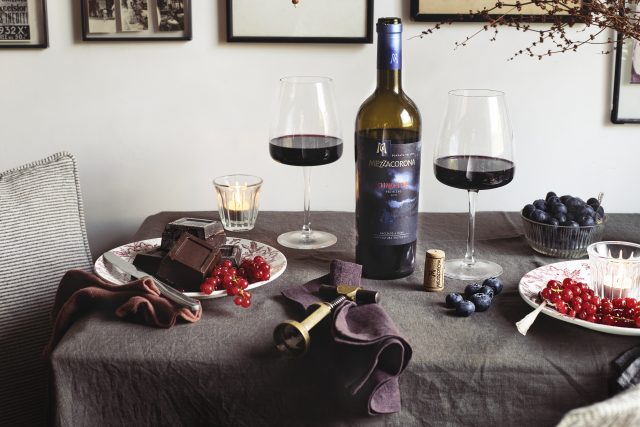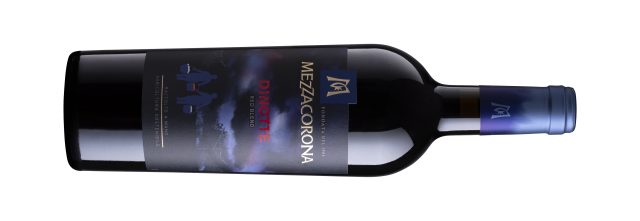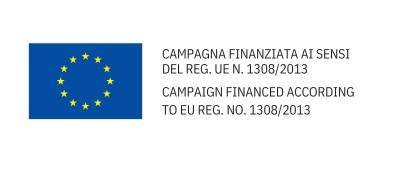Mezzacorona makes the most of its alpine variety, Teroldego
By Michael HubandIn a region known for international varieties, Mezzacorona is preserving its alpine heritage with the native red grape Teroldego Rotaliano.

Plantings in Trentino, northeast Italy, read like a catalogue of well-known varieties. Global giants such as Sauvignon Blanc and Merlot sit alongside far-travelled Moscato and Gewürztraminer in the region’s approved list. All of them are well known to Mezzacorona. In fact, the company is Italy’s largest estate producer for the international varieties Chardonnay and Pinot Grigio.
However, the respected producer has not forgotten its local heritage. In this corner of northern Italy, the local grape Teroldego Rotaliano has built an enthusiastic following. Though significantly less famous than those other grapes, the autochthonous variety has a fine pedigree. It is closely related to local star Lagrein , as well as the noble varieties Syrah and Pinot Noir.
At the northernmost tip of Trentino, a valley corridor that stretches from Lake Garda to Alto Adige’s alpine hills, sits Teroldego Rotaliano DOC. The appellation, in place since 1971, covers the Piana Rotaliana. This stunning plain, with 450 hectares of vineyards, is the grape’s home and the site where, since that very first vintage, Mezzacorona has explored the grape’s potential.
In many ways, it is a personal heritage. The estate made the very first bottle of Teroldego Rotaliano DOC in 1971, but had been growing the variety long before. Mezzacorna began its operations in 1904, when it formed as an association of 11 vintners that were, like the grape, local to the region. The company is therefore ideally placed to preserve Teroldego Rotaliano’s centuries of Alpine history.
For the estate’s team, this means celebrating the unique marriage of site and variety. In their minds, the two are almost inseparable. Winemaker Maurizio Maurizi describes the estate’s location as “a decisively charming habitat that defines the Teroldego style.”
Above all, the alpine influence is unavoidable. Viewed from the plain itself, the hills crowd in from every direction, with vineyards often butting against rocky outcrops. The mountainous backdrop protects the growing grapes, but also maintains their characteristic acidity with brisk winds and cool night air.
The valley floor also has its unique characteristics. With a long history of flooding, it has built up a stratified geological profile. Limestone and carbonates sit atop gravel and pebbles, ensuring fine drainage and mineral rich soils. The groundwater beneath is a reliable water source, allowing for consistently healthy grapes that nonetheless express the valley’s unique alpine character.
The result is a concentrated, intense profile, providing a rich palate of wild blackberries, redcurrants and violets against dense tannins and a backbone of spice. Like so many renowned varieties, it provides many options in the winery. Mezzacorona bottles both varietal wines and blended styles, such as the Dinotte Red Blend. Its Teroldego Rotaliano range also showcases a number of techniques, from carbonic maceration in stainless steel to ageing in toasted French oak.
For the Dinotte blend, Maurizi declares his intent “to create a modern alpine red wine, with linear, vertical, and fruity style.” The dominant Teroldego Rotaliano creates a fruity, full-bodied style, while blending partners Merlot and Marzemino add softness and smoothness. The combination is designed to please both experts and consumers. Maurizi’s recommendations, which include sipping it by a fire or with chocolate and blueberries, make it easy to imagine he will find that broad audience.
Below is a tasting note from db’s editor-in-chief, Patrick Schmitt MW.
Dinotte Red Blend

Producer: Mezzacorona
Region: Trentino
Country: Italy
Vintage: 2019
Grape varieties: Teroldego Rotaliano, Merlot, Marzemino
ABV: 13%
Residual sugar: 15g/L
Approx. retail price: £8.50
There is an appealing nose from the start, showing dark cherry (approaching kirsch in intensity), plums and a hint of dried herbs. The palate is powerful, leading with sweet dark cherry, intense blackcurrant, plums, and some pepper. There is a long, almost sweet, mid-palate that displays milk chocolate too, but it finishes on a fresh note with hint of cherry stone. This is an appealing mix of ripe berry fruit, fresh finish, and fine dry tannins that is refreshing, even with its sweet and ripe fruit profile.

Related news
Camartina: 'a gem of a Super-Tuscan'
Flotsam, jetsam and elixirs: Falernum goes submarine
Seven talking points from Vinitaly 2025 (apart from tariffs)
